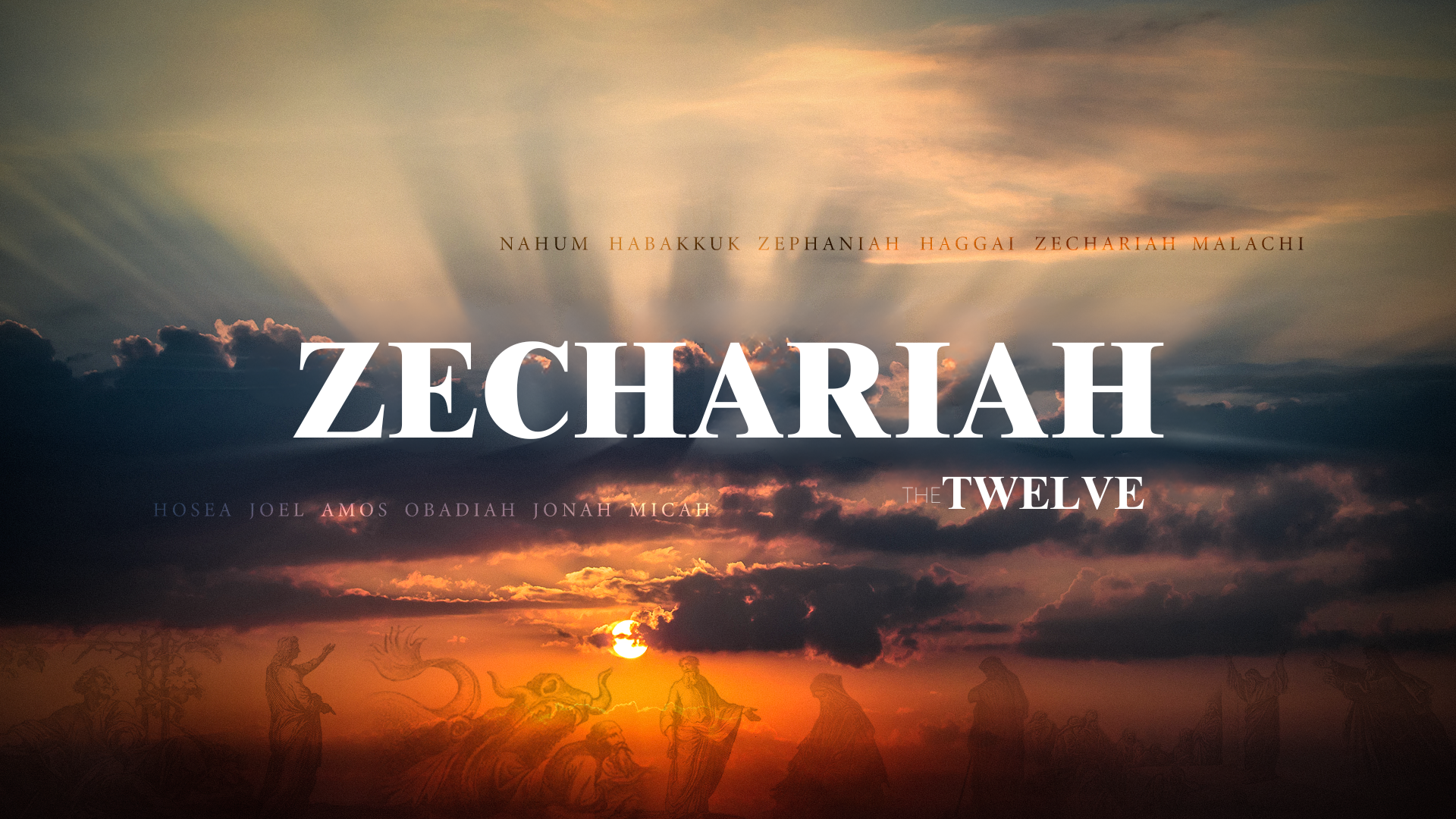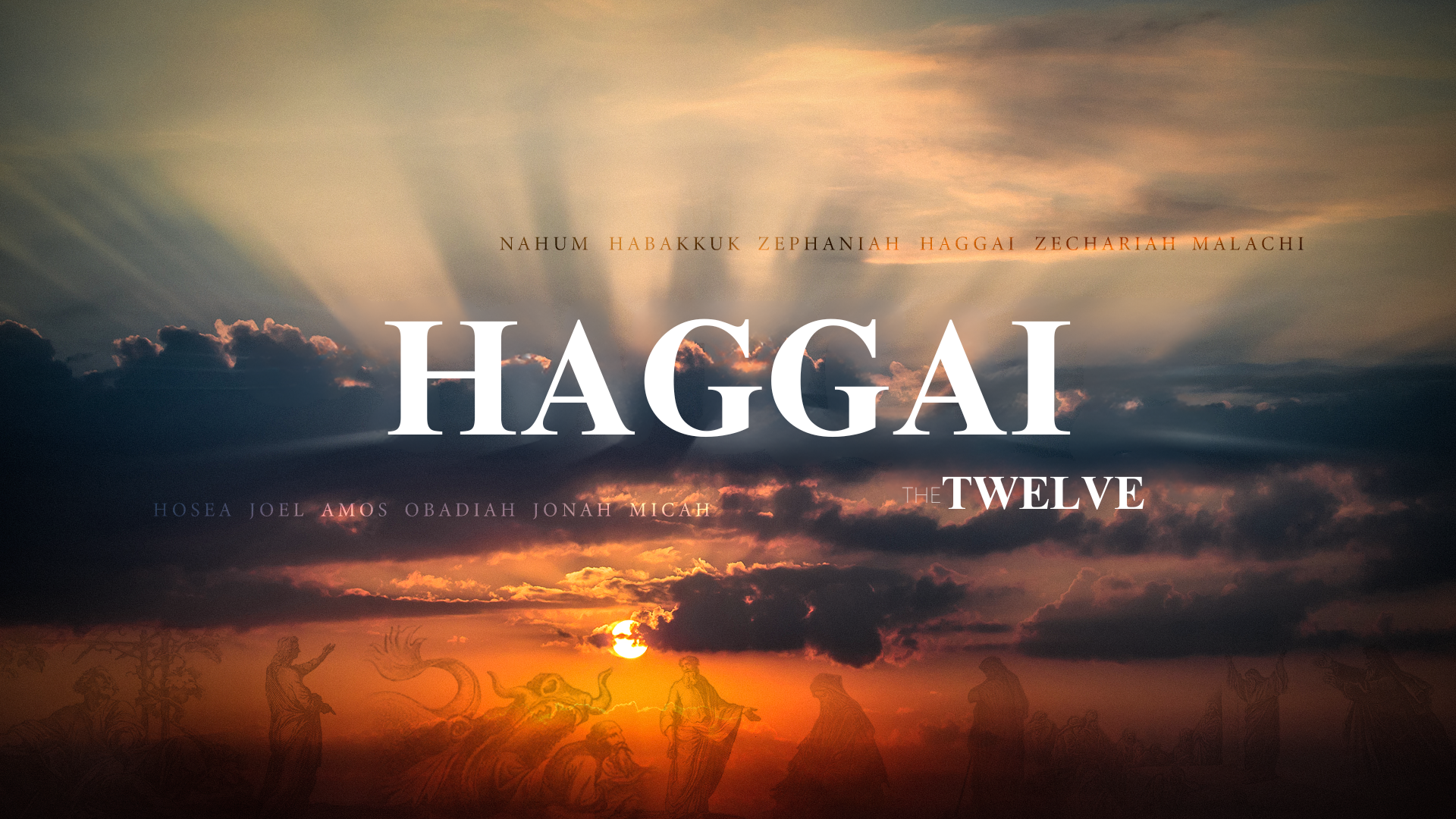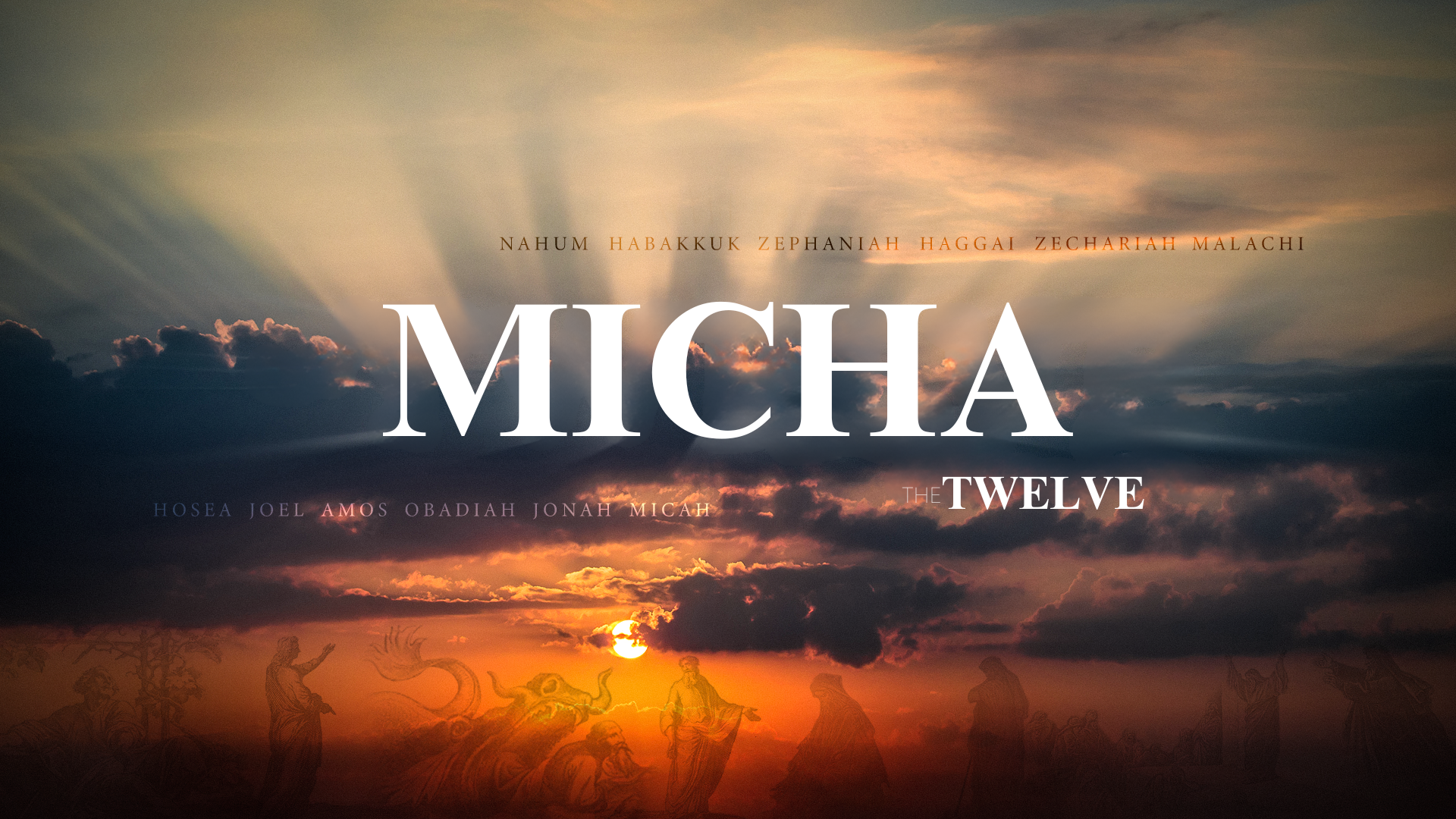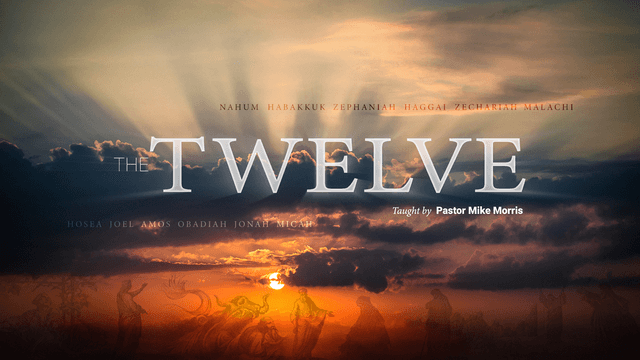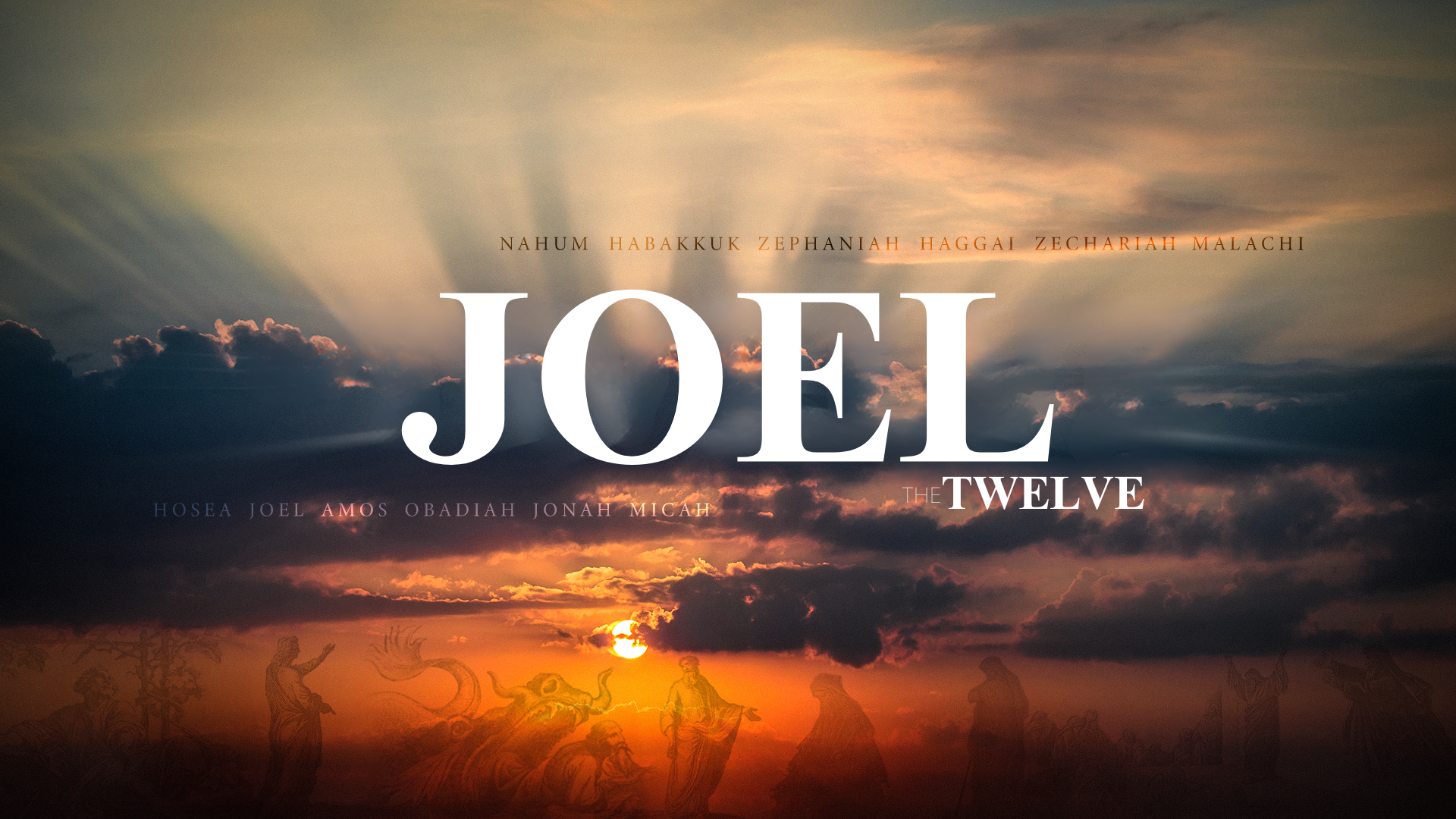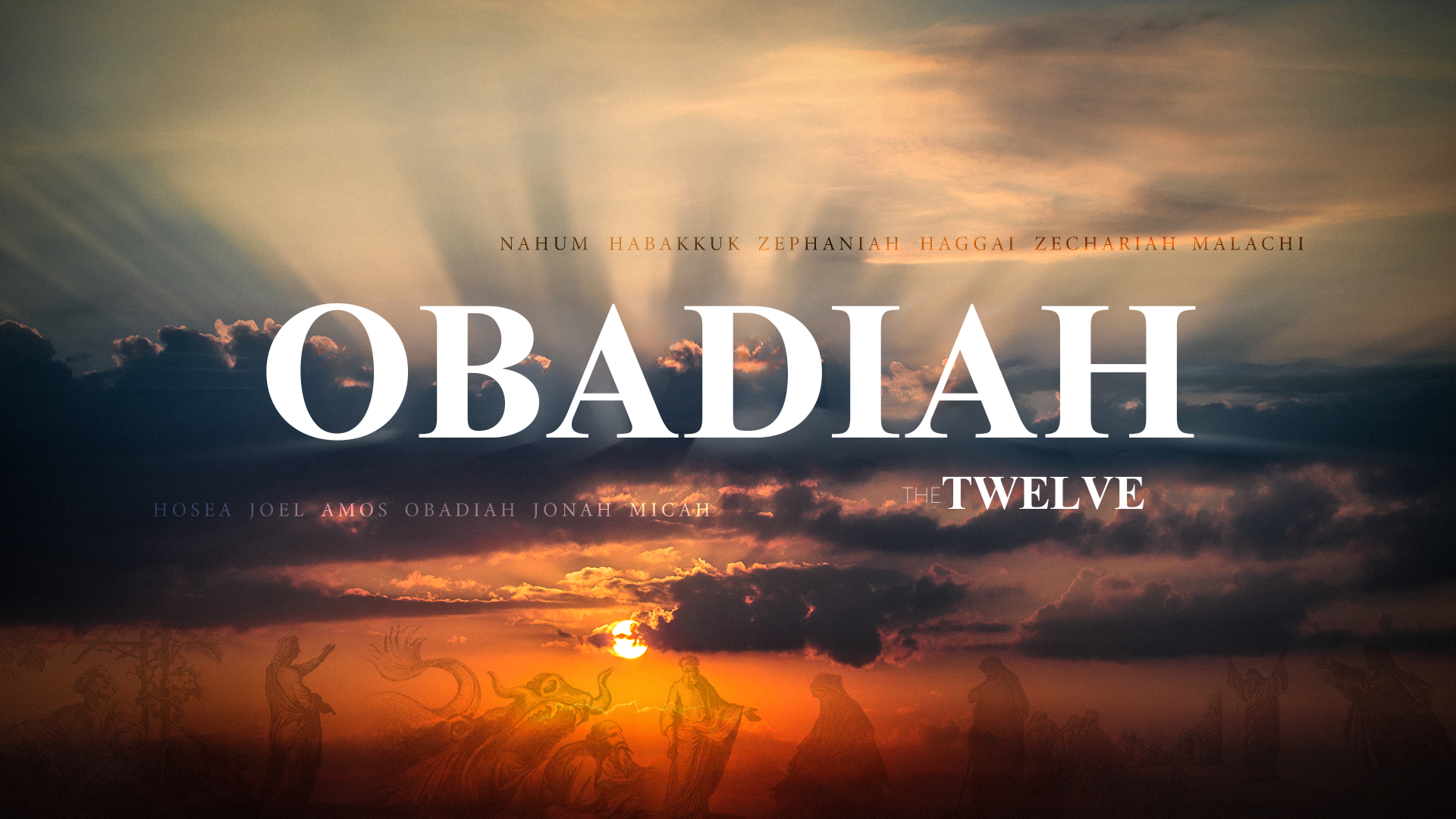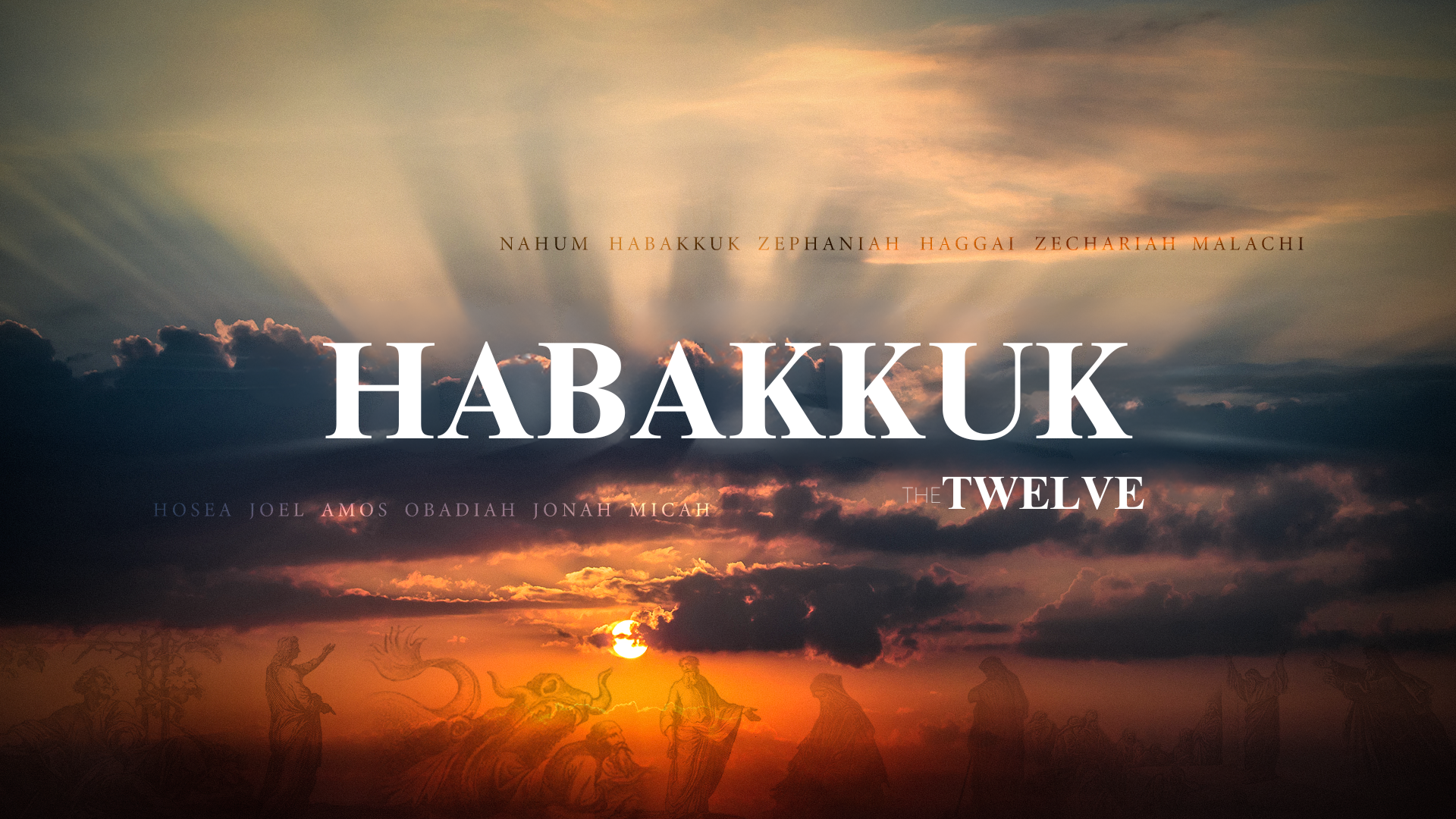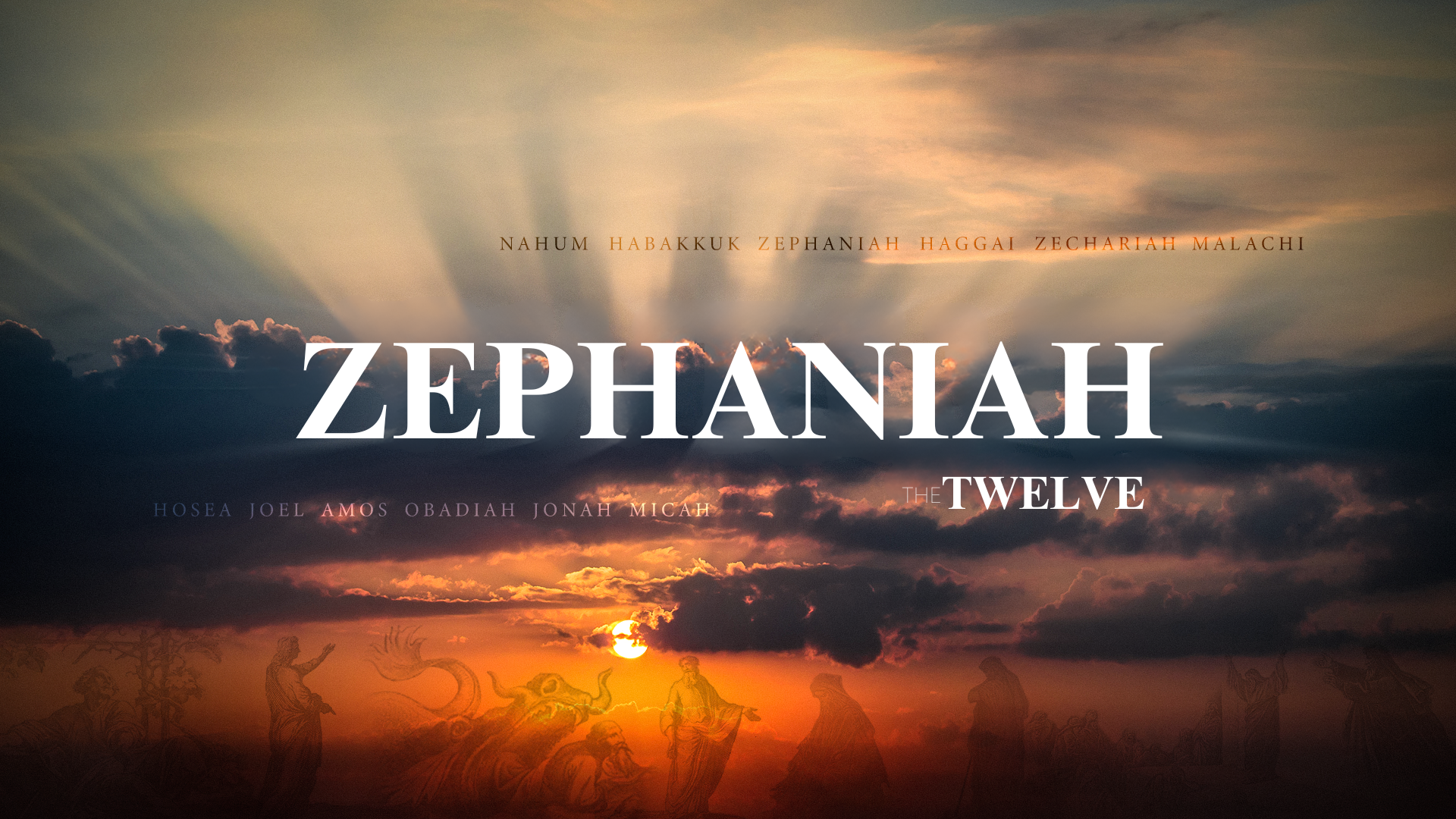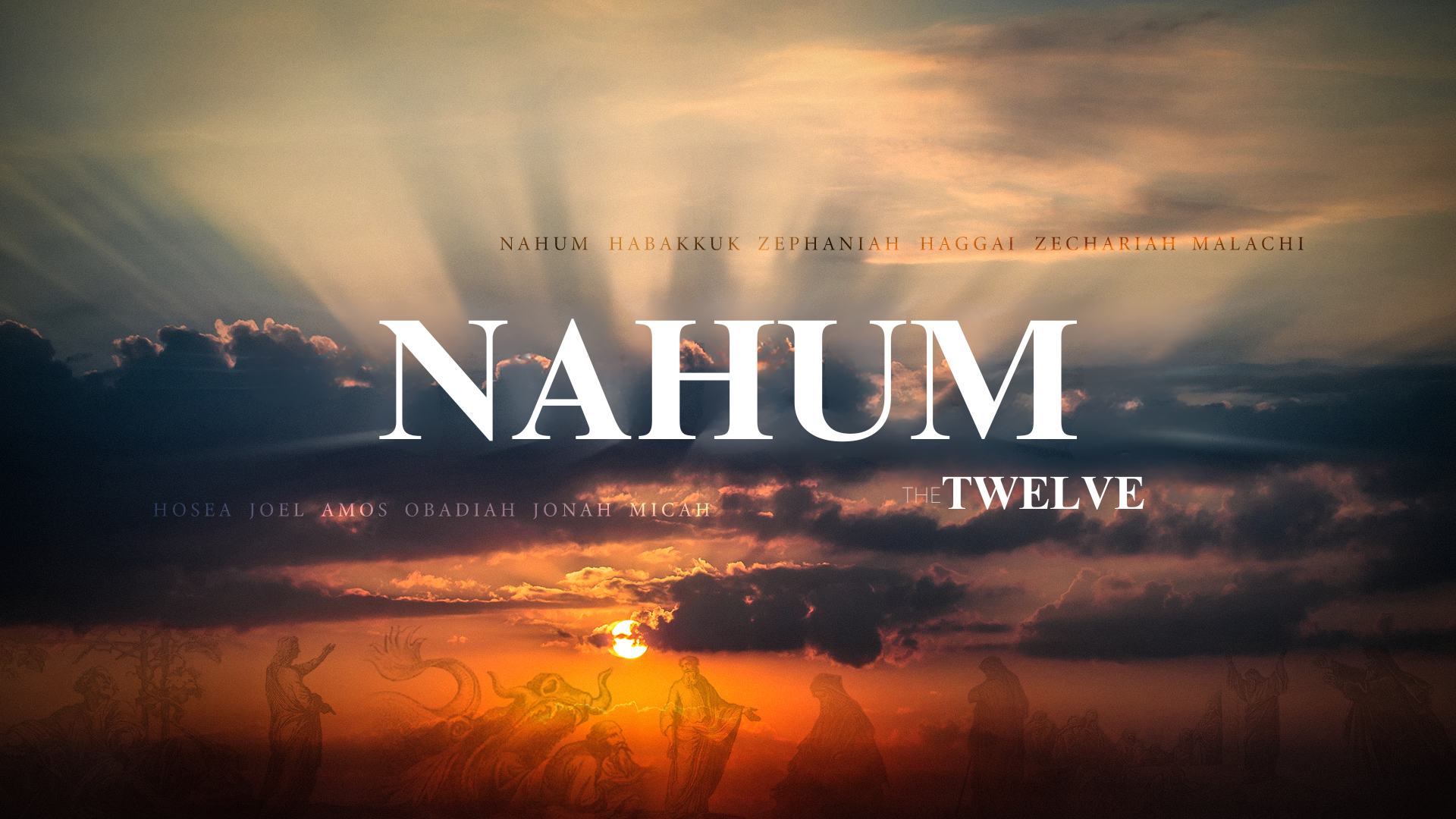MANUSCRIPT
Welcome back to our study of the Twelve, the ancient Hebrew name for the Old Testament books that we call the minor prophets...the last twelve books in your Old Testament... it is one of a group of texts called the Book of the Twelve in the ancient Hebrew Scriptures, which were regarded by the Jews as a single entity...
Today we continue our study of the book of Zephaniah...it’s a short book, 53 verses in three chapters, but there is much the Lord will teach us here...
Let’s look at the timelines of the two Israelite nations in the time of the divided monarchy, Israel in the north and Judah in the south...
The voices of the prophets ceased in the north as the Assyrians crushed Israel, taking them into captivity in 722 BC, an exile from which they never returned...
Judah endured another 135 years before falling to the Babylonians, the nation which conquered the Assyrians...our studies of Jonah through Nahum are available on our website, vbvf.org, under the “Old Testament”...look for the series entitled “The Twelve”
To review, the book of Zephaniah was written sometime between 640 and 587 BC, about fifty years before the beginning of the fall of Judah...the prophet was a contemporary of Nahum, Habbakkuk, and Jeremiah, and he was an intelligent and devout believer in Yahweh, familiar with Jerusalem and the Temple, and a gifted writer...
The book was written to the leaders and people of Judah, the southern kingdom, to call them to account for their sin as a nation, particularly in the first portion of the book, to give them hope for the future, and to remind them of Yahweh’s faithfulness to the covenant with His people...the entire book is one poetic work...
The primary theme is the Day of the Lord...it is everywhere in chapter one as the prophet describes the universal sin of mankind, with a particular focus on the sins of Judah...Zephaniah declares the day of the Lord to be a fearsome day, a day of incredible destruction as humankind is finally held accountable for sin and rebellion, but that message of wrath is tempered with a strong message of hope, both for the Israelites of Zephaniah’s day, and also the nations surrounding them...as we saw in chapter one, the Day of the Lord is a day of judgment, a day to repent, and a day to seek God...
Zephaniah represents the best of Old Testament prophecy...there are fearless declarations of God’s righteous anger and wrath, but also assurances of a loving father regarding the care of His people and their ultimate salvation...it begins darkly, but it ends with some of the most heartwarming and encouraging statements of God’s love, grace, and mercy to be found in Scripture...
Most importantly, it gives us insight into the answers to some of the most significant questions in the Bible: who is God? What is He like? How does He relate to us? As His Word reveals Him, what is the dominant picture we see about the Person and Nature of God? If we look at some parts of this picture, we see God as a judge or king, demanding obedience and punishing disobedience, quick to punish, distant, just and wrathful...in other parts of this picture, we see God as loving, kind, gracious, and merciful...we know that, at times, God is rightly all of those characteristics, and more, but we need to know what He is in His heart, what is His essential nature...Zephaniah helps us know Him...
Let’s jump into the text at 2.4...
A Day of Judgment against the Nations
After he calls God’s people to repentance in 2.1-3, Zephaniah turns to a declaration of God’s judgment against the nations that surrounded Judah...he prophesies against Judah’s closest hostile neighbors, the Philistines to the west; the long-time enemies of Moab and Ammon to the east over the Jordan; Cush, likely Egypt, far to the south, and lastly the superpower Assyria to the north, with its capital, Nineveh...
4 For Gaza shall be deserted,
and Ashkelon shall become a desolation;
Ashdod's people shall be driven out at noon,
and Ekron shall be uprooted.
5 Woe to you inhabitants of the seacoast,
you nation of the Cherethites!
The word of the Lord is against you,
Canaan, land of the Philistines;
and I will destroy you until no inhabitant is left.
6 And you, O seacoast, shall be pastures,
with meadows for shepherds
and folds for flocks.
7 The seacoast shall become the possession
of the remnant of the house of Judah,
on which they shall graze,
and in the houses of Ashkelon
they shall lie down at evening.
For the Lord their God will be mindful of them
and restore their fortunes.
Zephaniah names the four remaining major cities of Philistia, listing them from south to north, starting with Gaza and ending with Ekron...God’s judgment against this Gentile nation is rapid and complete...no more would they be a sovereign nation, but the people of Judah would once again occupy that land, peacefully grazing their flocks in and around the destroyed cities of their enemies...fulfilling the prophecy of Ezekiel 25.16...
Next God speaks to the Transjordanian city-states of Moab and Ammon...
8 “I have heard the taunts of Moab
and the revilings of the Ammonites,
how they have taunted my people
and made boasts against their territory.
9 Therefore, as I live,” declares the Lord of hosts,
the God of Israel,
“Moab shall become like Sodom,
and the Ammonites like Gomorrah,
a land possessed by nettles and salt pits,
and a waste forever.
Why this comparison? The people of Judah would remember Genesis 19, which records that after Lot and his family were rescued by the Lord from Sodom, Lot’s daughters seduced him under the influence of much wine, and each gave birth to a boy – one named Moab, one named Ammon...God’s judgment will now extend to these two nations who, in their arrogance, have tormented Judah for generations...
The remnant of my people shall plunder them,
and the survivors of my nation shall possess them.”
10 This shall be their lot in return for their pride,
because they taunted and boasted
against the people of the Lord of hosts.
11 The Lord will be awesome against them;
for he will famish all the gods of the earth,
and to him shall bow down,
each in its place,
all the lands of the nations.
The Lord God of Israel will cause the idols of these rebellious people to waste away until the nations shall bow down to the one true God...
Just one line to the distant nation of Cush, which we would identify today as probably Egypt...God promises a military defeat, which came through the Persians in 525 BC and then again through the Greeks in 332 BC...
12 You also, O Cushites,
shall be slain by my sword.
Finally, God turns to the regional superpower, Assyria, and Zephaniah declares His judgment...
13 And he will stretch out his hand against the north
and destroy Assyria,
and he will make Nineveh a desolation,
a dry waste like the desert.
14 Herds shall lie down in her midst,
all kinds of beasts;
even the owl and the hedgehog
shall lodge in her capitals;
a voice shall hoot in the window;
devastation will be on the threshold;
for her cedar work will be laid bare.
15 This is the exultant city
that lived securely,
that said in her heart,
“I am, and there is no one else.”
What a desolation she has become,
a lair for wild beasts!
Everyone who passes by her
hisses and shakes his fist.
God promised the downfall of the mightiest nation on earth, Assyria, declaring that it would be so thoroughly destroyed that only desert birds and animals would live there...while they were guilty of extreme cruelty and brutality in their military conquests, here God says He will judge them for their arrogance and pride, especially for the claim of sovereign authority...
A Day of Judgment against Judah
Now Zephaniah begins another judgment oracle...to his listeners it would have sounded as if he were continuing the word of judgment against Assyria, but he sets them up...because it sounds like Nineveh, but it isn’t...
1 Woe to her who is rebellious and defiled,
the oppressing city! (boo, Nineveh!)
2 She listens to no voice;
she accepts no correction.
She does not trust in the Lord;
she does not draw near to her God. (wait, what?!)
3 Her officials within her
are roaring lions;
her judges are evening wolves
that leave nothing till the morning.
4 Her prophets are fickle, treacherous men;
her priests profane what is holy;
they do violence to the law. (you’re talking about Judah, aren’t you?)
Now his listeners understand...he’s talking about Judah and Jerusalem...the officials, the judges, the prophets are predators of the people, faithless, heartless, lawless men masquerading as leaders but in fact they are leading the people astray and away from the holy God...
Zephaniah speaks on behalf of God, declaring His perfection before the Lord speaks for Himself, describing His actions toward Judah and Jerusalem and His righteous expectation...
5 The Lord within her is righteous;
he does no injustice;
every morning he shows forth his justice;
each dawn he does not fail;
but the unjust knows no shame.
6 “I have cut off nations;
their battlements are in ruins;
I have laid waste their streets
so that no one walks in them;
their cities have been made desolate,
without a man, without an inhabitant.
7 I said, ‘Surely you will fear me;
you will accept correction.
Then your dwelling would not be cut off
according to all that I have appointed against you.’
But all the more they were eager
to make all their deeds corrupt.
This is a truth Judah never understood...God’s judgment was intended to be redemptive, to draw His people back to Himself through a process of suffering and restoration...which in fact, He would do with Judah just decades later as they were taken into exile in Babylon...note verse 7...His desire was that the His people would accept correction and return to Him, learn to rightly reverence Him, but they did not until they had spent long years in a foreign land...the passage continues with the Sovereign God’s decision to judge the nations surrounding Judah...by the way, His ways haven’t changed in that sense...if we will not accept correction, then we will suffer redemptive-focused judgment...
8 “Therefore wait for me,” declares the Lord,
“for the day when I rise up to seize the prey.
For my decision is to gather nations,
to assemble kingdoms,
to pour out upon them my indignation,
all my burning anger;
for in the fire of my jealousy
all the earth shall be consumed.
God declares again the judgment that will fall on the nations He identified in chapter 2; and there is something here that is obvious but needs to be clearly said: God is sovereign over all the nations of the earth...Jews and Gentiles, people from every tongue and tribe and nation and land shall all worship Him...listen to Revelation 15.3-4...
3 And they sing the song of Moses, the servant of God, and the song of the Lamb, saying,
“Great and amazing are your deeds,
O Lord God the Almighty!
Just and true are your ways,
O King of the nations!
4 Who will not fear, O Lord,
and glorify your name?
For you alone are holy.
All nations will come
and worship you,
for your righteous acts have been revealed.”
A Day of Hope
In Geneva, Switzerland, there is an international monument to the Protestant Reformation...the primary sculpture wall bears witness to the work of God in and through four of the leaders of the Reformation: William Farel, John Calvin, Theodore Beza, and John Knox...also on this wall is carved a phrase that has come to be known as the motto of the Reformation: Post Tenebras Lux, Latin for “After Darkness, Light”...the closing passage of the book begins here in verse 9 and illustrates that truth...the entire book has been the prelude to this final section...I urge you to pay close attention from here to the end of the book, for we will see God’s character and His ultimate purpose for mankind...
9 “For at that time I will change the speech of the peoples
to a pure speech,
that all of them may call upon the name of the Lord
and serve him with one accord.
10 From beyond the rivers of Cush
my worshipers, the daughter of my dispersed ones,
shall bring my offering.
He’s changing the speech of the peoples here to a pure speech, by changing the hearts and minds of the pagan nations that would suffer the judgments described by Zephaniah...while God’s judgment may be fierce, His heart is to redeem and restore and renew, to draw even the Gentiles to Himself that they might call upon Him and serve Him...He is fitting us for worship, Jews and Gentiles alike...
God’s redemptive purpose extends as far as the creation itself, and His sovereignty is over all nations and peoples, not just one...listen to Psalm 22.27-28...
27 All the ends of the earth shall remember
and turn to the Lord,
and all the families of the nations
shall worship before you.
28 For kingship belongs to the Lord,
and he rules over the nations.
Look at verses 11 through 13...the Lord speaks now to the nature of the change He will bring about in humanity...He doesn’t tell us what to do or how to act, He simply states what He will accomplish in and through the remnant, declaring it as established fact...finishing this portion of the text with a reference back to Psalm 23, comparing us to the flock of God, settled in peace in green pastures and resting beside still waters, secure in our Shepherd, with sin removed from our experience, and that sin replaced by righteousness...
11 “On that day you shall not be put to shame
because of the deeds by which you have rebelled against me;
for then I will remove from your midst
your proudly exultant ones,
and you shall no longer be haughty
in my holy mountain.
12 But I will leave in your midst
a people humble and lowly.
They shall seek refuge in the name of the Lord,
13 those who are left in Israel;
they shall do no injustice
and speak no lies,
nor shall there be found in their mouth
a deceitful tongue.
For they shall graze and lie down,
and none shall make them afraid.”
This passage foreshadows the incomparable tenth chapter of John, the Good Shepherd chapter of the Bible...look at what God will accomplish in His people, His one flock with One Shepherd...
He will change us from proud to humble
He will change us from unjust to just
He will change us from liars to truthtellers
And He will change us from people marked by fear to people filled with peace
God Himself will prune away from humanity all who live in arrogance, who rise up with haughty spirits against the Almighty God, and He will provide for Himself a people worthy of Him, fitted to be the bride for His Son, matched in character to Jesus as the sheep are to their loving Shepherd...
Now comes the climax of the book...
14 Sing aloud, O daughter of Zion;
shout, O Israel!
Rejoice and exult with all your heart,
O daughter of Jerusalem!
15 The Lord has taken away the judgments against you;
he has cleared away your enemies.
The King of Israel, the Lord, is in your midst;
you shall never again fear evil.
16 On that day it shall be said to Jerusalem:
“Fear not, O Zion;
let not your hands grow weak.
17 The Lord your God is in your midst,
a mighty one who will save;
he will rejoice over you with gladness;
he will quiet you by his love;
he will exult over you with loud singing.
Words can barely express this...following the barrage of judgment, Zephaniah now calls on Judah to rejoice with all their hearts, for he sees the day coming when their enemies will be defeated, their sins cleansed, their hands strengthened, and their fears banished...no longer would they fall before the Assyrians or the Babylonians, for their covenant God Himself, their King, would be with them, the mighty One, the only One Who can save...
And while we rejoice in Him, He rejoices over us with gladness! The very heart of God rejoices over His people...over us...He is glad we are His!
He quiets our souls with His love...this is very similar to Psalm 23.3...He restores our souls...in His great and tender love, He picks us up, the sheep of His fold, and comforts us, holding us and shepherding us as the panic and the fear, the chaos and brokenness, flee from His presence...
And most beautiful of all, our God exults over us with loud singing...the Maker of heaven and earth, in joy and triumph, singing over His people, the entire people of God, Jews and Gentiles, women and men from every tribe and nation and people, together forever...what a magnificent moment of praise and joy and delight, as God sings over this one flock that God has been lovingly calling together, from the moment of election before the foundation of the world, to the beginning moments of eternity in the new heavens and the new earth...
He continues...
18 I will gather those of you who mourn for the festival,
so that you will no longer suffer reproach.
19 Behold, at that time I will deal
with all your oppressors.
And I will save the lame
and gather the outcast,
and I will change their shame into praise
and renown in all the earth.
20 At that time I will bring you in,
at the time when I gather you together;
for I will make you renowned and praised
among all the peoples of the earth,
when I restore your fortunes
before your eyes,” says the Lord.
As the book ends, God assures His people of His faithful blessing...verse 20 is such a hopeful statement from our Good Shepherd: I will bring you in, I will gather you together...your shame will be put away, I will draw you near, and I will be in your midst...
So as we close, we return to our questions from the beginning: who is God? What is He like? While this book proclaims judgment, it even more brilliantly proclaims the boundless love and matchless grace of a Father who will never let us go...His heart is for His people...to close, look at Lamentations 3.31-33...a short passage in the middle of one of the darkest books in the Bible, but that’s where we learn something important about the Father...
31 For the Lord will not
cast off forever,
32 but, though he cause grief, he will have compassion
according to the abundance of his steadfast love;
33 for he does not afflict from his heart
or grieve the children of men.
What is foremost in the heart of God? Compassion...steadfast, covenant love...and drawing His people near, not casting them away...while He judges when He must, He does not afflict from His heart...it is His character to respond first in grace, not in punishment...
We see this truth again from Jesus in Matthew 11.28-30...
When Jesus describes His own heart, He calls Himself gentle and lowly...humble and meek...He and the Father are one, and they operate from the same place of love and mercy...make no mistake, God can and will correct us, but He does it with the purpose of drawing His people close to His heart of love...
Today, let His kindness and patience lead you to repentance...and believer, rejoice, for your God exults over you with songs of love...be encouraged and draw near to Him!

Taught by Mike Morris
Associate Pastor of Verse By Verse Fellowship
The Twelve Series
